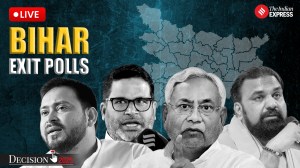The Centre has cleared a plan for setting up 2 lakh Primary Agricultural Credit Societies (PACS), dairy, and fisheries cooperatives in the country in the next five years.
A decision to this effect was taken during the meeting of the Union Cabinet chaired by Prime Minister Narendra Modi on Wednesday.

The plan, mooted by the Ministry of Cooperation, is aimed at “strengthening cooperative movement in the country and deepening its reach up to the grassroots”.
Story continues below this ad
The Cabinet also approved the constitution of a “high level Inter-Ministerial Committee (IMC)” headed by Minister of Home and Cooperation Amit Shah to oversee the rollout of the plan.
According to an official statement, the Cooperation Ministry formulated a plan to establish viable PACS, dairy and fishery cooperatives in villages, and strengthen the existing ones through convergence of various schemes of the Ministry of Fisheries, Animal Husbandry & Dairying by leveraging the ‘whole-of-government’ approach.
“Initially, 2 lakh PACS, dairy, fishery cooperatives will be established in the next five years. The action plan for implementation of the project shall be prepared by NABARD, National Dairy Development Board (NDDB) and National Fishery Development Board (NFDB),” the statement said.
ExplainedRural reach
The move is significant as there are still 1.6 lakh panchayats without PACS and nearly 2 lakh panchayats without any dairy cooperative society. According to the Cooperation ministry, at present, there are around 99,000 PACS, having a member base of 13 crore; 1,99,182 primary dairy cooperative societies with around 1.5 crore members; and 25,297 primary fishery cooperative societies, having around 38 lakh members.
As per the statement, four schemes have been identified for convergence to enable formation of 2 lakh PACS, dairy and fishery cooperatives. These four schemes are—National Programme for Dairy Development (NPDD), and Dairy Processing & Infrastructure Development Fund (DIDF) under the Department of Animal Husbandry and Dairying; and Pradhan Mantri Matsya Sampada Yojana (PMMSY), and Fisheries and Aquaculture Infrastructure Development (FIDF) under the Department of Fisheries.
Story continues below this ad
To oversee the smooth rollout of the plan to establish cooperatives, the government has also approved a high-level committee.
“A high level Inter-Ministerial Committee (IMC) under the chairmanship of Home & Cooperation Minister with Minister of Agriculture and Farmers Welfare; Minister for Fishery, Animal Husbandry and Dairying; Secretaries concerned; Chairman NABARD, NDDB and Chief Executive NFDB, as members has been constituted and empowered to take necessary steps for smooth implementation of the plan,” said the statement.









